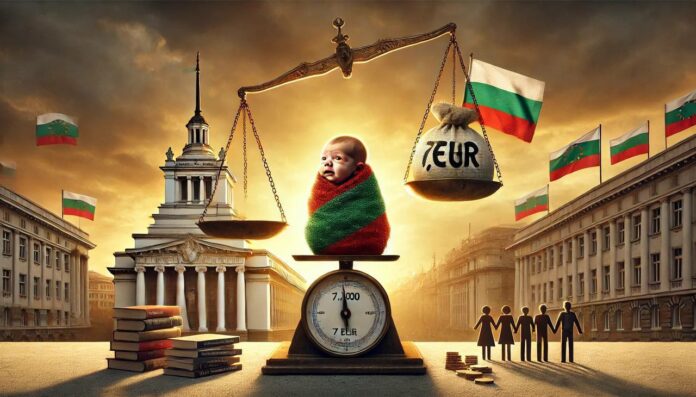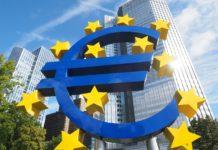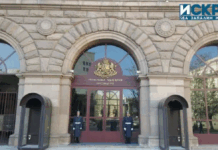
„We are born with our first cry, our first tear… and our first debt. Every Bulgarian starts life with over 7,000 euros in debt, which has to be paid off over the years. But why? Bulgarians are born optimist. They are used to believing that life will somehow work out, that „there is time“, „it’s no big deal“. Debts? They’ve always been some distant abstraction, something that supposedly exists but is rarely felt in practice. That is, of course, until the time comes to pay.“
This is what Tsveta Galunova commented, adding further:
„Today, a Bulgarian is born not only with their first cry and first tear, but also with their first obligations. The math is simple – even before they say „mama“, they already have a share of the country’s foreign debt. Over 7,000 euros per person – that’s the cost of being a citizen of a country that, for decades, has been alternating between loans and economic crises like a bad game of dice.
Of course, debts are part of every economy. Big countries accumulate astronomical sums but invest in infrastructure, technology, and social reforms. Small countries, however, rarely have this luxury. Here, loans are taken to patch up the budget, to „save the situation“ to ensure calm until the next elections.
Now, as always, the time comes for another loan. The budget doesn’t add up, the bills don’t balance, so the government does the most logical thing – it takes more. A few more billion in loans to cover the gaps, to keep „holding the line“ to ensure stability… at least until the next vote.
They give to the grandmothers, but later they take from the grandchildren.
The system is brilliant in its injustice – the state borrows to give. Money is given for pensions, social payments, promises that sound good on the news. However, this money didn’t come from nowhere – it was borrowed.
They give to the grandmothers and grandfathers, but the grandchildren will pay it back. Some receive, others inherit debts. And so, instead of the state finding a way to generate income, it simply finds a way to delay the payment.
A Nation of Debtors
Today, debt is not just an economic category. It is part of the national identity. Bulgarians don’t just live in a country with loans – they are born with them, grow up with them, and die with them. And in the meantime, they continue to believe that „somehow we will get better“.
Will this model change? Will newborn Bulgarians one day be able to breathe freely, without being debtors from their very first day? This depends on the decisions made today.
But for now – congratulations! Another Bulgarian baby was born, and with this child – another 7,000 euros contribution to the national account.“






